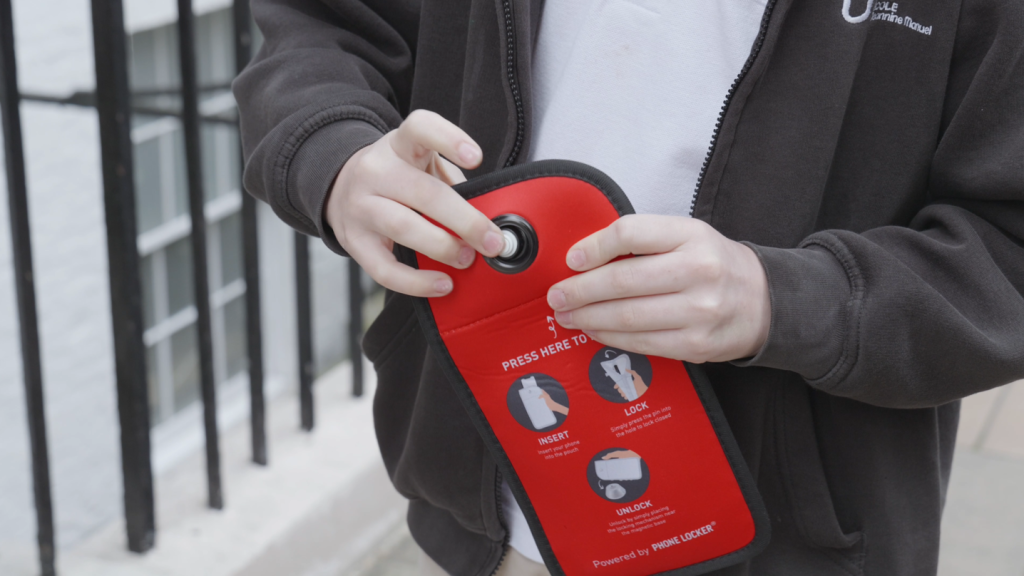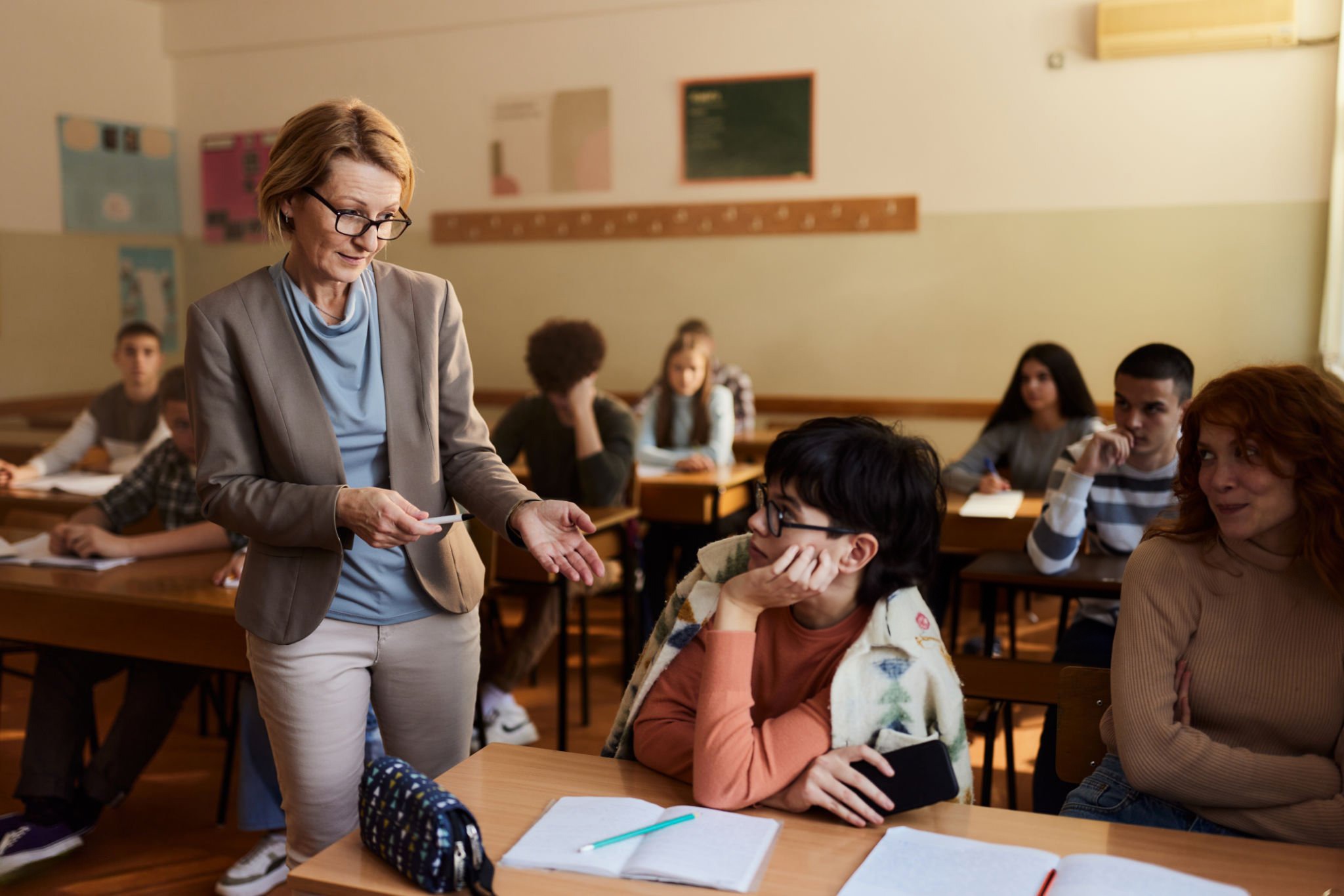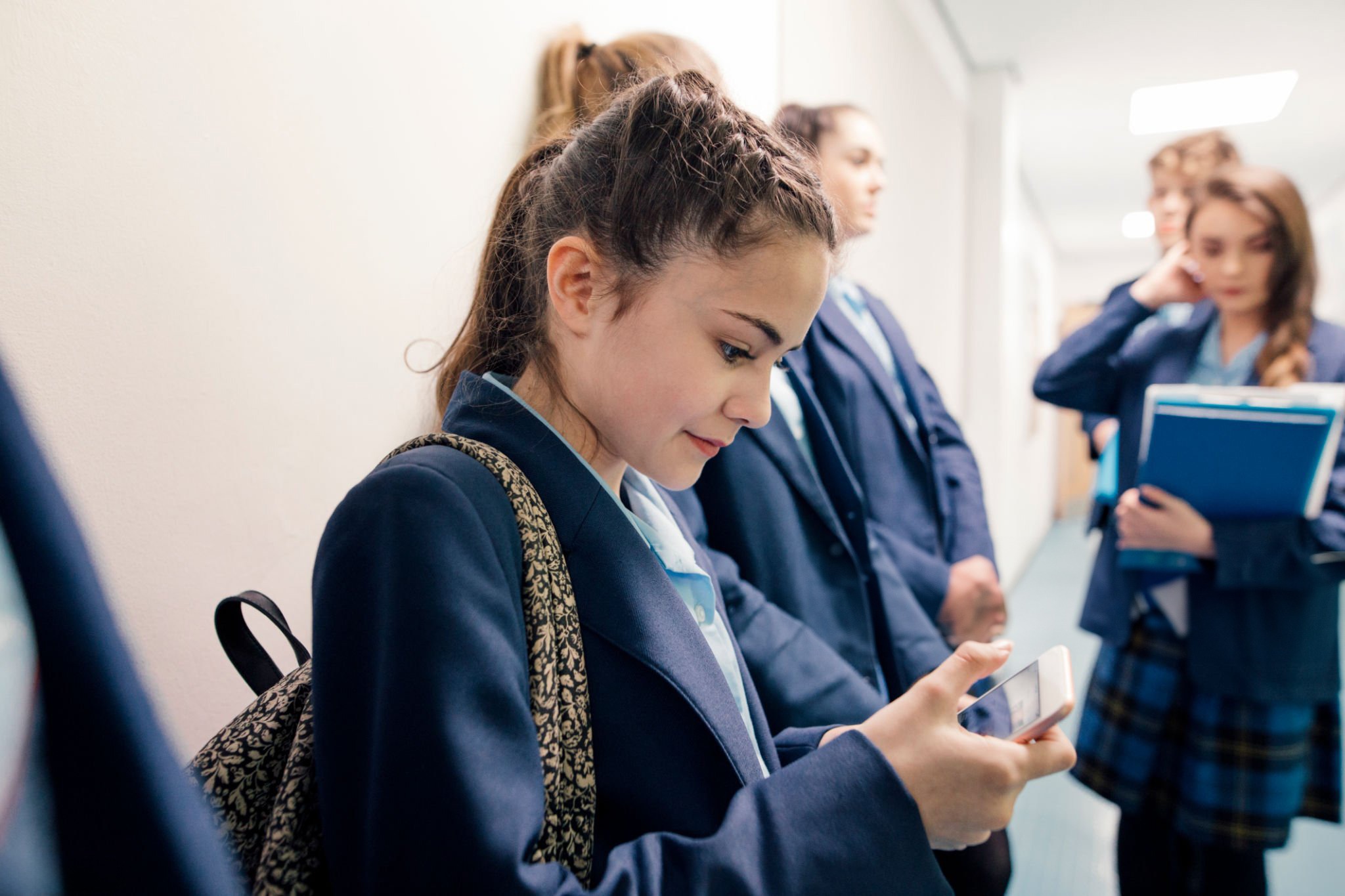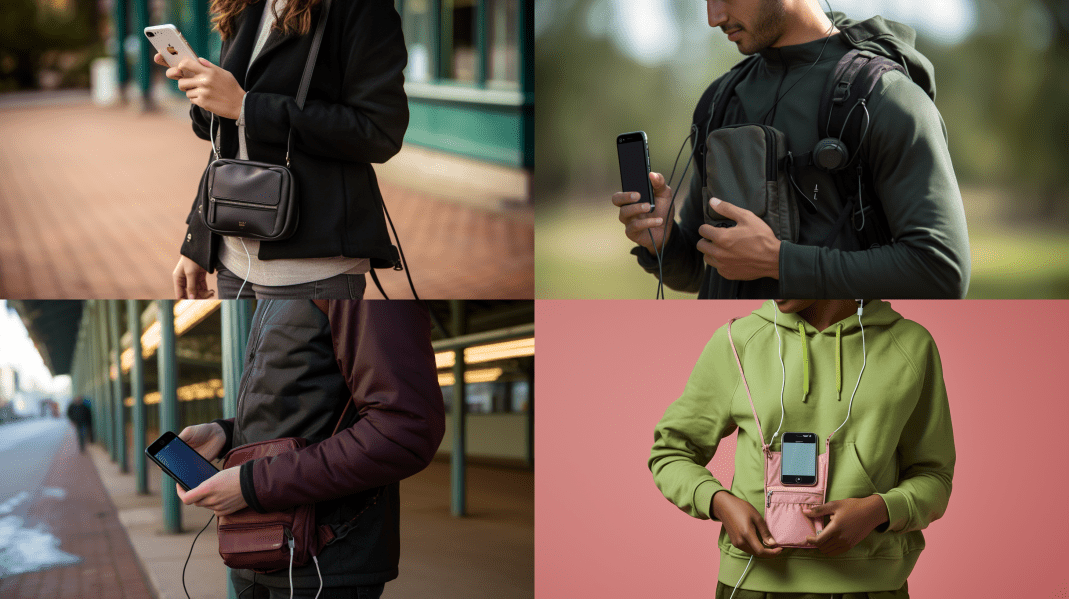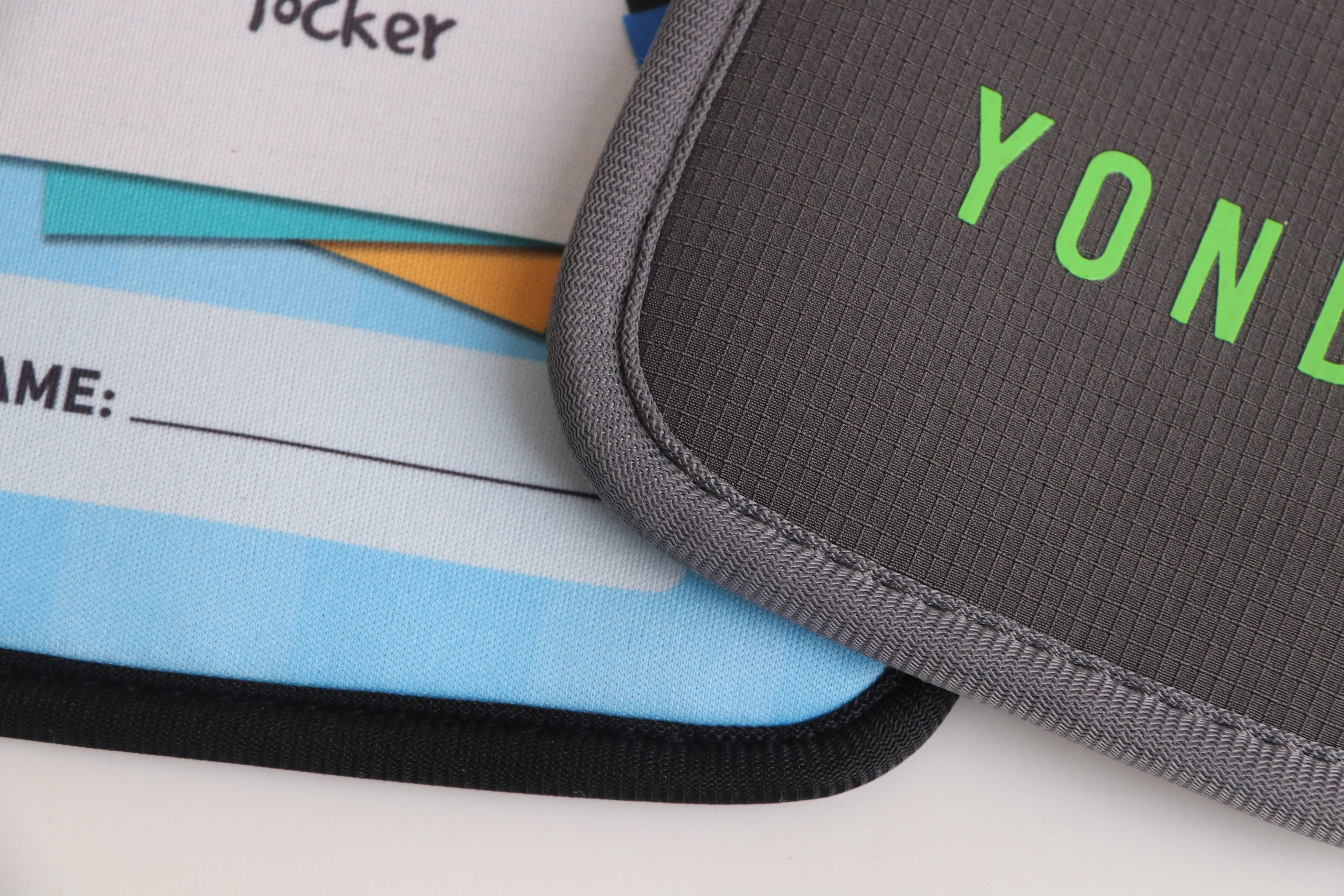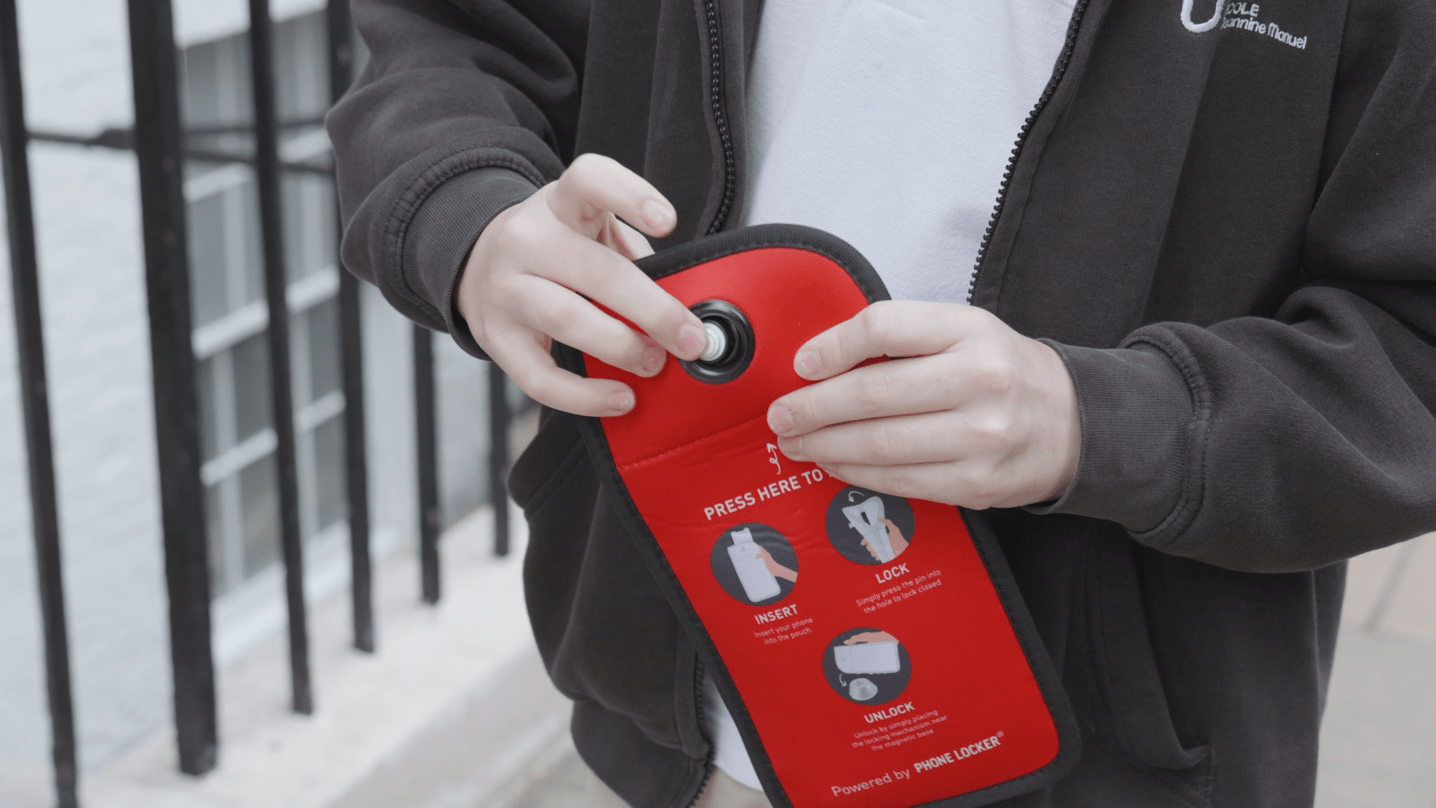What is a Lockable Phone Pouch?
A Lockable Phone Pouch does exactly what it says on the tin! It’s a material pouch that secures smartphones and other gadgets using a magnetic seal that can only be unlocked by a specific base magnet.
It’s a simple but effective solution for a complex problem, helping so many people reclaim the present!
Where are Phone Pouches used?
Phone pouches are used across many different industries such as schools, concerts, meetings and events to create ‘phone-free’ environments. But it’s not limited to these, and the list of spaces that would benefit from going phone-free is continually growing, with locations such as Gyms and Nightclubs beginning to toy with the idea.
The lockable pouches help maintain confidentiality in important settings and protect people’s privacy. Although the benefits of a phone-free environments are widely recognised they do have varying benefits in different usage situations:
Education
Phone pouches are the most popular solution for limiting phone use in schools as they:
- Prevent unnecessary stand offs with teachers when students refuse to give up their phone.
- Removes liability for possession of the device as the student retains it throughout the school day.
- Can be unlocked at any point by the teacher for technology learning integration.
- Stops recording of pupils in the school building and during breaks.
Events
Artists such as Kevin Hart use phone pouches at their events as it:
- Allows people to reclaim their present.
- Means people are engaged with the show and the content rather than on their phones.
- Prevents unauthorised sharing of the artist’s work.
Workplace
Phone pouches are used across many different workplace environments. For example, Ben Stiller bans phone on his film sets as:
- It prevents sharing or leaking of private and confidential information.
- It helps engage different areas of the workforce for the same goal.
- It increases productivity by limiting distractions.
With phone bans becoming increasingly popular across Europe and Australia, it’s evident to see why Phone Locker® has become the popular patented solution for creating phone-free environments, now used in over 20 countries worldwide!
However, this isn’t the only option for screen management, there are alternatives used to help create phone-free environments such as blanket bans on phones, Phone Locker® pouches and the Yondr alternative.
Phone Locker® vs Yondr pouches: See a side-by-side comparison here!
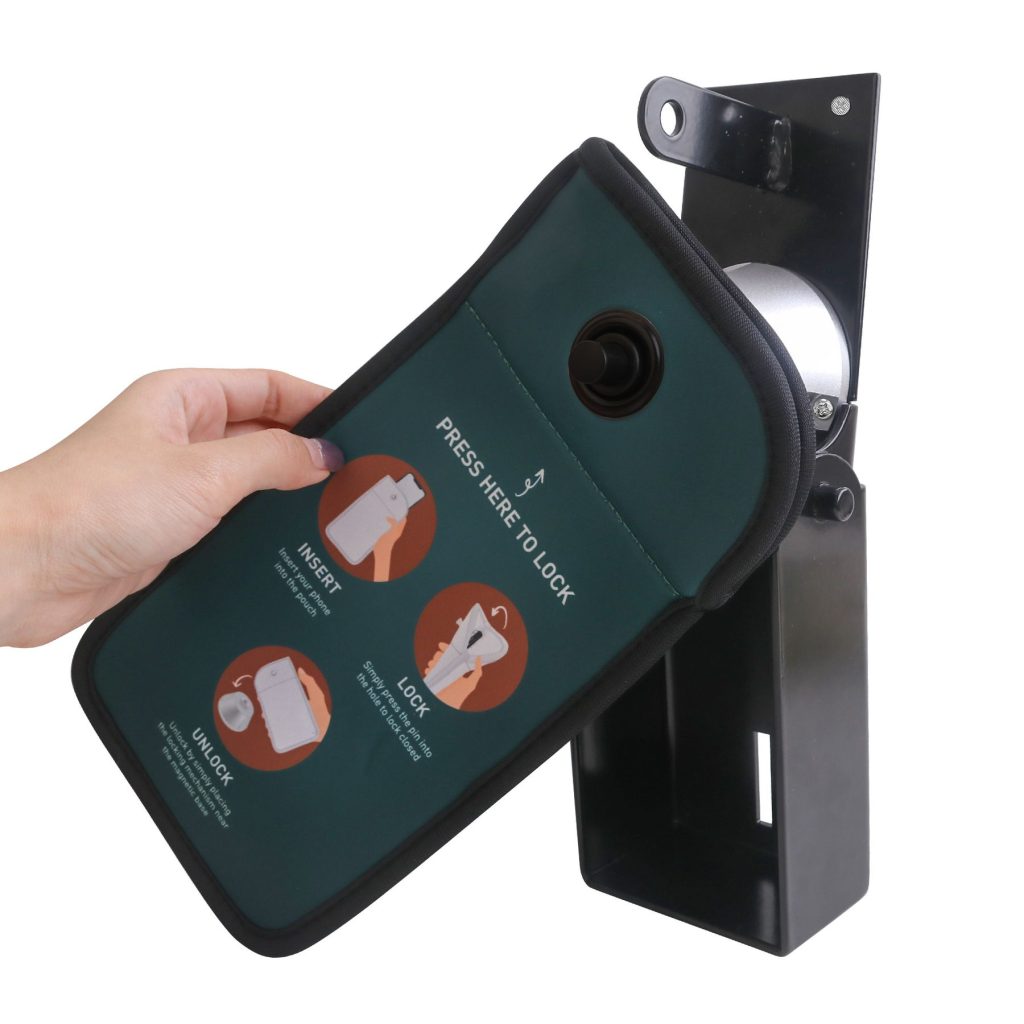
What is Phone Locker®?
Phone Locker® was born out of the growing problem of smartphone management and the distraction that comes with its everyday usage and constant connectivity. Beginning in Australia 2020, Phone Locker® is responsible for the innovative patented pouches that are redefining how we interact with technology, encouraging mindfulness and helping people immerse themselves in the present.
Founded with the aims to improve wellbeing, Phone Locker® intends to carry this mantra across all of its operations as part of its commitment to ethical manufacturing, sustainable practices and continuous innovation.
Phone Locker’s rise to global leadership in phone-restriction comes from being part of the long-term solution to screen use, especially in schools. Alongside this, parents and teachers are striving to develop digital awareness through methods such as digital literacy courses, digital detoxes and even smart phone free childhoods!
The impact phone pouches can have in school’s is best demonstrated by the Jeannine Manuel International School which found the implementation of Phone Locker’s Pouches to be overwhelmingly positive.
Do Phone Pouches interfere with connectivity?
Phone Locker® offers both signal blocking and non-signal blocking versions of their pouch. The materials used for the signal blocking pouch are military-grade meaning that users have comprehensive ‘noise’ cancellation – no buzzes, no dings, no chimes.
This is by far the most popular choice as it allows users to fully engage in the moment, stopping all noises and distractions that might be coming from your device.
Phone Locker® also offers a non-signal blocking variation of this pouch which allows users to dip their toes into the benefits of a phone-free environments by restricting access to the devices but not entirely preventing communications if there is something urgent they have to be responsive to.
Additionally, Phone Locker® understands that there are variables that can affect every person’s individual situation and that some users may need instant access to their device. For example, a student with diabetes may monitor their insulin levels on an app, which they of course will need unrestricted access to. For instances like this, Phone Locker® has velcro pouches available, which enables constant access to one’s smartphone without the user being alienated or singled out for not using a pouch.
But what about when a pupil ‘forgets’ to bring their pouch in? Surely this could create discourse amongst the users and the forgetters? Well thankfully, Phone Locker® has thought of that too and provides spare ‘Oops I forgot my Pouch’ pouches for those forgetful students.
Where else are pouches used?
This isn’t a regional crisis, or even a national problem. This is an international issue that countries across the globe are now trying to tackle. While France was the first country to implement phone bans in their schools and are now providing digital detox classes for their students, Australia has taken even bigger steps by sanctioning a world first Social Media Ban for Under 16s and implementing a smartphone ban across schools.
This global movement in tackling smartphone usage is continuing to grow, as we, the users of smartphones begin to wise up to the necessity of screen management. This has seen a huge uptake of Phone regulation across Europe, particularly in Germany and Belgium.
But it’s not limited to Europe, even countries like Canada are experiencing increasingly large problems with smartphone usage. Particularly in schools where teachers have had instances of students leaving midway through class to pick up their Uber Eats, which they’ve ordered to the school!
Thankfully, the world is beginning to realise the impact that devices are having on our livelihoods, and the right steps are being taken to begin reclaiming our autonomy, separate from our smartphones.
Phone Locker® exemplifies the big impact that small and simple actions can have on our lives, and with the benefits glaringly obvious, I guess the question isn’t ‘What are Lockable Phone Pouches’ but Why aren’t you using Lockable Phone Pouches?
See our How-To on implementing an effective phone ban in your school, or contact us to begin your phone-free journey.
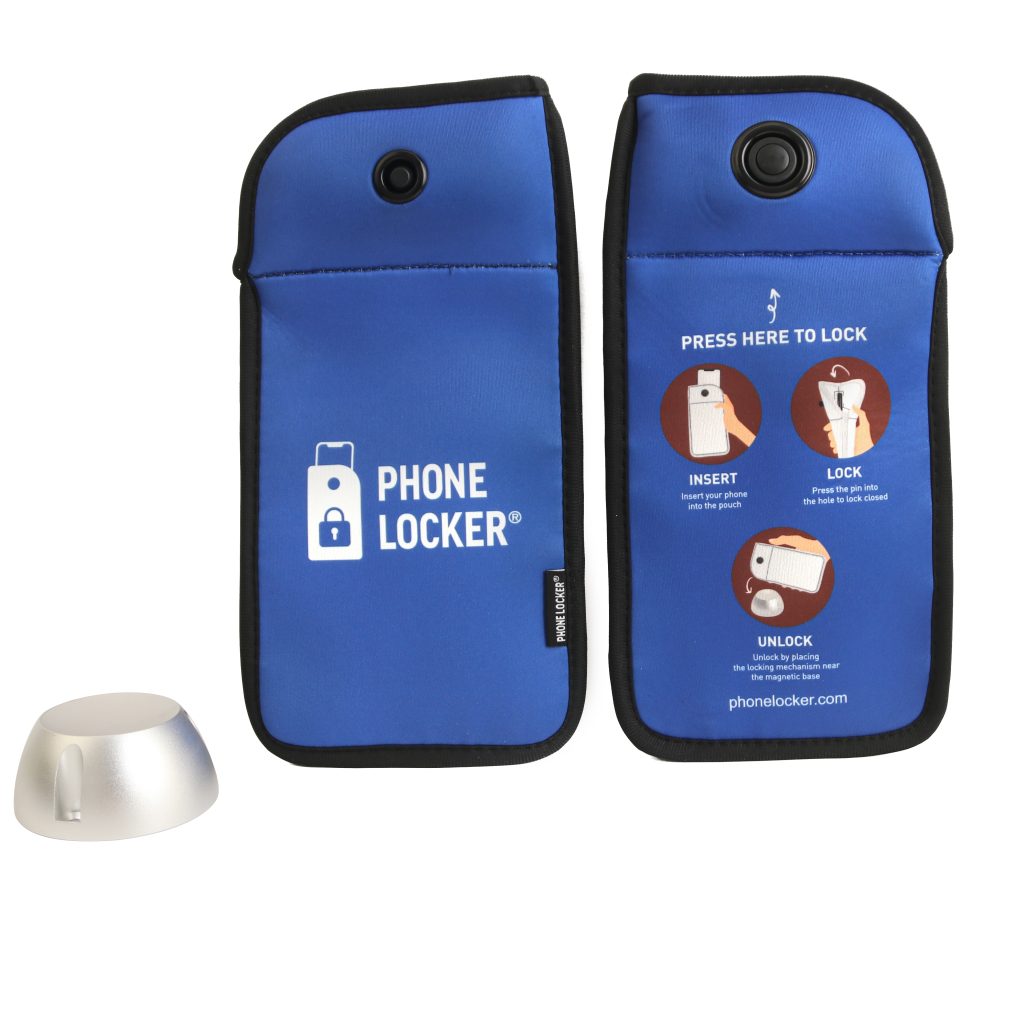
Frequently Asked Questions (FAQs)
How Do Smartphone Bans Impact Student-Teacher Communication?
A study revealed 80% of teachers experienced fewer classroom distractions post-ban. These changes can positively impact academic performance and enhance social interactions among students.
Are There Any Exceptions to Smartphone Bans for Emergency Situations?
Exceptions to smartphone bans typically involve parental consent and teacher discretion, adhering to established emergency protocols. School policies prioritise student safety, ensuring that smartphones may be used when necessary to maintain a secure learning environment.
What Alternatives to Smartphones Are Suggested for Educational Purposes?
Tablet integration, interactive whiteboards, e-learning platforms, digital textbooks, and virtual reality simulations are suggested alternatives, enhancing educational experiences through innovative technology while maintaining focus and reducing distractions in the classroom.
How Do Smartphone Policies Address Special Needs Students?
Smartphone policies for special needs students emphasize inclusive accommodations, accessibility considerations, and individualized support plans. They incorporate assistive technology options and appropriate supportive resources to guarantee equitable access to educational opportunities.
Are There Any Studies on the Psychological Effects of Smartphone Bans on Students?
A recent study revealed that students experienced improved academic performance and better social interactions post-smartphone ban, notably enhancing mental health, attention span, working memory and behaviour management both in and out of educational environments.


